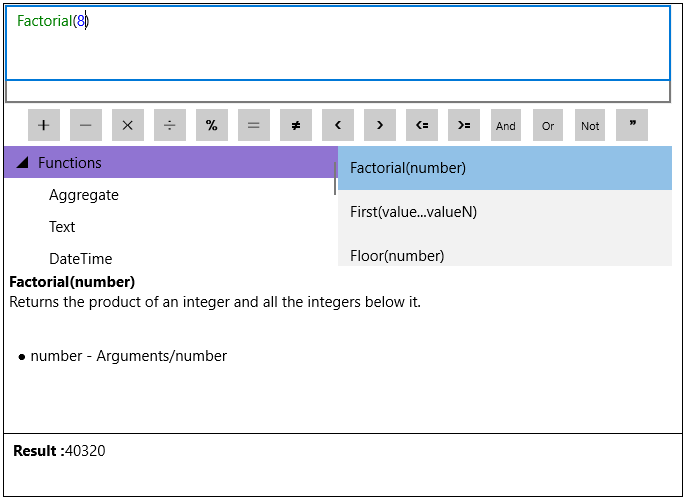Expression Editor provides various built-in functions to create expressions for your applications. Furthermore, it allows you to define custom functions according to your application’s requirement. The AddFunction method of C1ExpressionEditor class allows you to add custom functions to Expression Editor. This custom function gets added to the ExpressionEditor engine and is accessible at runtime by C1ExpreesionEditor for performing calculations.
The following image shows a custom function used in the ExpressionEditor control.

The following code demonstrates how a custom function is created and added to the Expression Editor panel: